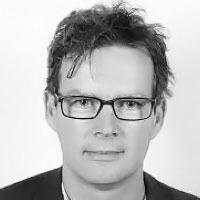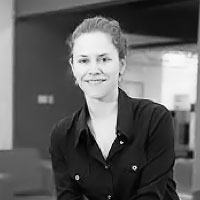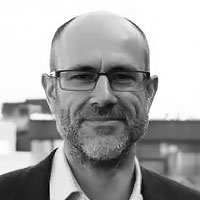
SUSTAINABILITY: ENVIRONMENT, ECONOMY AND SOCIETY
ONLINE CERTIFICATE COURSE
Gain practical strategies to move towards a greener future with an integrated, social-sciences view of sustainability.
6 weeks, excluding 1 week orientation.
6–8 hours of self-paced learning per week, entirely online.
Email: lseonline@getsmarter.com
Call: +44 1223 790 603
ABOUT THIS COURSE
Sustainability has fast transitioned from a business buzzword into an imperative. Yet many organisations still lack an in-depth understanding of all it entails or how it might be achieved. It’s not sufficient to treat sustainability as an isolated technical problem to be crossed off the corporate checklist. True sustainability calls for a broad, multidimensional strategy that incorporates a deeper appreciation for the economics, politics, and social dynamics that govern it.
On the Sustainability: Environment, Economy and Society online certificate course from the London School of Economics and Political Science (LSE), you’ll develop an integrated, holistic understanding of sustainability today from a social-science perspective. Over the course of six weeks, you’ll gain a firm grasp of current concepts within this space, including sustainability transitions, sustainability economics, and sustainable development. With guidance from leading researchers in the field, you’ll move from theory to practice through the application of various real-world scenarios, while unpacking the complex relationship between business growth and sustainability. You’ll also learn how best to manage climate-related risk and conserve natural capital, and develop a sound strategy for leading sustainability in your own organisation. Walk away with the insights needed to weave sustainability into your work and ‘hybridise’ your role, and the skills to successfully participate in the green economy of tomorrow.

This Sustainability: Environment, Economy and Society online certificate course is certified by the United Kingdom CPD Certification Service, and may be applicable to individuals who are members of, or are associated with, UK-based professional bodies. The course has an estimated 70 hours of learning.
Note: should you wish to claim CPD activity, the onus is on you. The London School of Economics and Political Science (LSE) and GetSmarter accept no responsibility, and cannot be held responsible, for the claiming or validation of hours or points.
WHAT THIS COURSE COVERS
This course interrogates sustainability from a social-sciences perspective, providing a broad and current overview of key concepts within this space. It starts by exploring the multidimensional nature of sustainability and the factors that can accelerate or impede sustainability transitions. Next, you’ll gain the opportunity to relate key sustainability economics concepts to real-world situations and examine the contribution of nature and natural capital to wealth and well-being. You’ll then unpack the complex relationship between economic policies and sustainability, and discover the ways in which green growth can be achieved. From there, you’ll investigate how social development and sustainability interact, before analysing the shared, interconnected nature of climate-related risk through the lens of the water-energy-food nexus. Finally, you’ll unpack the applications of sustainability from a corporate and financial perspective, and learn how to develop an informed sustainability strategy that takes business risks and benefits into account.
A POWERFUL COLLABORATION
The London School of Economics and Political Science is collaborating with online education provider GetSmarter to create a new class of learning experience – one that is high-touch, intimate, and personalised for the working professional.
ABOUT LSE
The London School of Economics and Political Science (LSE) is a leading dedicated social science university. LSE was founded in 1895 with the aim of understanding the causes of things for the “betterment of society”. LSE seeks to make research and teaching practical and relevant to the real world. The School counts 20 Nobel Prize winners and 40 world leaders amongst its alumni and staff. LSE has students from over 160 countries, and over 100 languages are spoken on campus.

ABOUT LSE ONLINE CERTIFICATES
LSE is dedicated to addressing global issues through research and education, and is the most international of all British universities. By offering online certificate courses designed by expert LSE faculty members, the School aims to make its state-of-the-art social sciences research and insights available to a wider global audience. The supported, interactive online learning model allows participants to study from anywhere in the world, at times of their convenience, while still interacting with peers and teaching staff alike.

ABOUT GETSMARTER
GetSmarter partners with the world’s leading universities and institutions to select, design and deliver premium online short courses with a data-driven focus on learning gain.
Technology meets academic rigour in GetSmarter’s people-mediated model, which enables lifelong learners across the globe to obtain industry-relevant skills that are certified by the world’s most reputable academic institutions.
As a participant, you will also gain unlimited access to edX’s Career Engagement Network at no extra cost. This platform will provide you with valuable career resources and events to support your professional journey. You can look forward to benefits including rich content, career templates, webinars, workshops, career fairs, networking events, panel discussions, and exclusive recruitment opportunities to connect you with potential employers.
WHAT YOU’LL LEARN
You’ll be welcomed to the course and begin connecting with fellow participants, while exploring the navigation and tools of your Online Campus. Be alerted to key milestones in the learning path, and review how your results will be calculated and distributed.
You’ll be required to complete your participant profile, confirm your email address for the delivery of your digital certificate, and submit a digital copy of your passport/identity document.
Please note that module titles and their contents are subject to change during course development.
Explore the multidimensional nature of sustainability and the transition from unsustainability to sustainability.
- Recognise that sustainability is a multidimensional and contested issue
- Identify key developments in the emergence of sustainability
- Determine the impact of sociotechnical sustainability transitions
- Describe how different actors shape sustainability policies
- Articulate how political interests can accelerate or impede sustainability transitions
Explore sustainable economics and question traditional measures of wealth and well-being.
- Identify how economics has influenced sustainability
- Examine key concepts that illustrate the contribution of nature to wealth and well-being
- Articulate how changes to the way in which economic progress is measured are a building block of the sustainable economy
- Examine sustainability discussions through the lens of natural capital and ecosystems services
Discover ways in which a sustainable, green economy can be achieved.
- Interpret the debates around economic growth and sustainability
- Explore the merits and shortcomings of green growth and degrowth
- Use a standard policy toolkit to address real-world sustainability problems
- Analyse how economic policies might bring about a sustainable economy
Explore how social development and sustainability interact.
- Identify different conceptions of development
- Examine how different conceptions of development influence the well-being of individuals and integrity of the climate
- Assess the tensions between sustainability and development
- Reflect on who might be winners and losers in situations of environmental change
- Assess how different actors might reconcile trade-offs between Sustainable Development Goals
Learn about natural resource interconnections and shared risk associated with climate change.
- Review interdependencies in practice through the lens of the water-energy-food nexus
- Reflect on the impact of everyday resource consumption
- Analyse the shared and interconnected nature of climate-related risk
- Assess how the various interdependencies impacted by climate change shape risks and opportunities
- Evaluate the potential for sustainable development to address the threat of climate change
- Recommend steps for your organisation to respond to global environmental change and climate risk
Explore the applications of sustainability from a corporate and financial perspective.
- Analyse the growing role of corporations in governing sustainability
- Assess how financial actors are governing their relationship with social and environmental issues
- Assess financial systems for sustainability
- Attribute the risks and opportunities in an organisation pursuing sustainability
- Formulate meaningful ways of engaging with sustainability in an organisation
WHO SHOULD TAKE THIS COURSE
This course will benefit any professional interested in driving sustainability, regardless of their industry or role. Business leaders, directors, and managers will gain real-world strategies for leading sustainability practices in their organisations, while finance and investment professionals will enhance their ability to deliver socially responsible investments. Public-sector professionals, including those who work with non-governmental organisations and agencies, will benefit from a cross-sector perspective on sustainability, and unearth tools to improve their current role performance. Risk and compliance managers will gain insights into the shared, interconnected nature of climate-related risk, and technical environmentalists will be able to more effectively link their practices to the world of business and prove the value of sustainability in the marketplace. Participants of all experience and skill levels will develop a deeper understanding of the current sustainability landscape, and acquire practical tools for hybridising their careers in the green economy of the future.
THIS COURSE IS FOR YOU IF YOU WANT TO:
ENHANCE YOUR KNOWLEDGE
Gain a holistic, conceptual perspective on how economic and political theory applies to sustainability, using an integrated social-science lens.
TURN THEORY INTO PRACTICE
Unpack the connection between sustainable development and business practices through the practical application of relevant, real-world scenarios.
BUILD A SUSTAINABILITY STRATEGY
Learn how to value and preserve natural capital, manage the impact of climate-related risk, and lead your organisation towards a greener future.
ADVANCE IN YOUR CAREER
Develop your ability to incorporate sustainability into all aspects of your role and organisation, with guidance from expert LSE faculty.
ABOUT THE CERTIFICATE
Get recognised for your knowledge when you earn a certificate of competence from the London School of Economics and Political Science – a world-leading social science university – and use it to validate your new-found sustainability knowledge.
Assessment is continuous and based on a series of practical assignments completed online. To be issued with a digital certificate, you’ll need to meet the requirements outlined in the course handbook. The handbook will be made available to you as soon as you begin the course.
Your digital certificate will be issued in your legal name and sent to you upon successful completion of the course, as per the stipulated requirements.
WHO YOU’LL LEARN FROM
These subject matter experts from LSE guide the course design and appear in a number of course videos, along with a variety of industry professionals.
YOUR COURSE CONVENORS

Professor Declan Conway
Interim Deputy Director and Professorial Research Fellow, Grantham Research Institute on Climate Change and the Environment, LSE

Dr Marion Dumas
Assistant Professorial Research Fellow, Grantham Research Institute on Climate Change and the Environment, LSE

Professor Giles Atkinson
Professor of Environmental Policy and Deputy Head of Department (Education and Teaching), Department of Geography and Environment, LSE

Dr Nora Sylvander
Fellow in Environment, Department of Geography and Environment, LSE

Dr Richard Perkins
Associate Professor of Environmental Geography, Department of Geography and Environment, LSE
HOW YOU’LL LEARN
Every course is broken down into manageable, weekly modules, designed to accelerate your learning process through diverse learning activities:
- Work through your downloadable and online instructional material
- Interact with your peers and learning facilitators through weekly class-wide forums and reviewed small group discussions
- Enjoy a wide range of interactive content, including video lectures, infographics, and more
- Investigate real-world problems and data sets
- Apply what you learn each week to quizzes and ongoing project submissions, culminating in an enhanced capacity to weave sustainability into your organisational strategy
YOUR SUCCESS TEAM
GetSmarter, with whom LSE is collaborating to deliver this online course, provides a personalised approach to online education that ensures you’re supported throughout your learning journey.
HEAD TUTOR
A subject expert who’ll guide you through content-related challenges.
SUCCESS ADVISOR
Your one-on-one support is available during University hours (8am–5pm GMT) to resolve technical and administrative challenges.
GLOBAL SUCCESS TEAM
Available 24/7 to solve your tech-related and administrative queries and concerns.
TECHNICAL REQUIREMENTS
BASIC REQUIREMENTS
In order to complete this course, you’ll need a current email account and access to a computer and the internet, as well as a PDF Reader. You may need to view Microsoft PowerPoint presentations, and read and create documents in Microsoft Word or Excel.
BROWSER REQUIREMENTS
We recommend that you use Google Chrome as your internet browser when accessing the Online Campus. Although this is not a requirement, we have found that this browser performs best for ease of access to course material. This browser can be downloaded here.
ADDITIONAL REQUIREMENTS
Certain courses may require additional software and resources. These additional software and resource requirements will be communicated to you upon registration and/or at the beginning of the course. Please note that Google, Vimeo, and YouTube may be used in our course delivery, and if these services are blocked in your jurisdiction, you may have difficulty in accessing course content. Please check with an Enrolment Advisor before registering for this course if you have any concerns about this affecting your experience with the Online Campus.